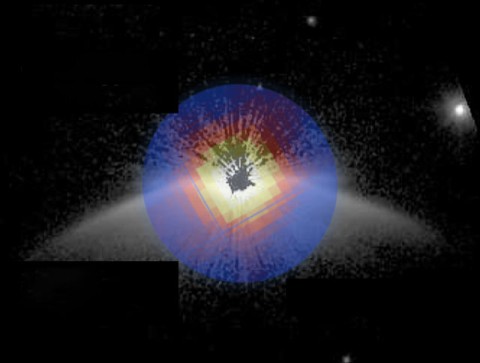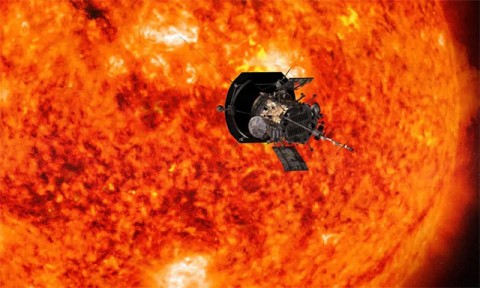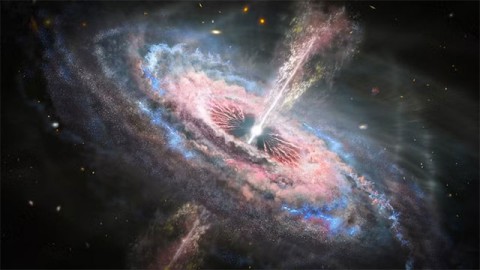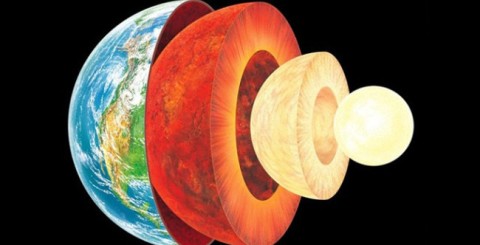What does the sun revolve around is a question that many people are interested in. Does the sun rotate? Let's find out together!
Many people believe that the Sun is the center of the universe, it stands still and other planets such as Earth, Venus, Mars... revolve around it. So what is the reality? Read the following article to get the most accurate answer.
Geocentric theory
The once widely accepted, now disproven, geocentric theory holds that the Earth is the center of the universe, with the sun and planets revolving around it.
However, some people still believe that the universe revolves around them. According to a 2012 survey conducted by the National Science Foundation of 2,200 people in the United States, when asked "Does the Earth revolve around the sun or does the sun revolve around the Earth?", one-quarter answered incorrectly.
This outdated view of the universe was once our only one. The ancient Greeks were the first to propose a geocentric view of the universe. According to NASA, Eudoxus was the first to create a geocentric model of the universe around 380 BC. Aristotle then proposed a more detailed geocentric theory, which was then refined by Claudius Ptolemaeus (also known as Ptolemy) in his treatise Almagest, published in the 2nd century AD, according to the American Mathematical Society. NASA states that “Ptolemy represents the pinnacle of Greek astronomical knowledge.” This is reflected in the fact that the geocentric theory has stood the test of time and has been accepted for nearly 1,500 years.
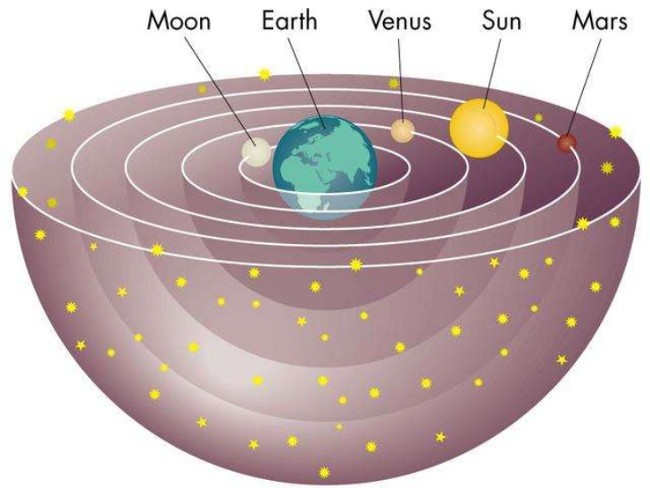
Geocentric theory simulation image.
During this period, ancient astrology established that the Earth was spherical. This view also dominated Europe at that time.
Heliocentrism
It was not until the 17th century that famous scholars such as Copernicus, Kepler and especially Galileo gradually introduced the concept of heliocentrism.
According to this concept, the Sun is the center of the universe, and other planets such as Earth, Mars, Mercury... revolve around it.
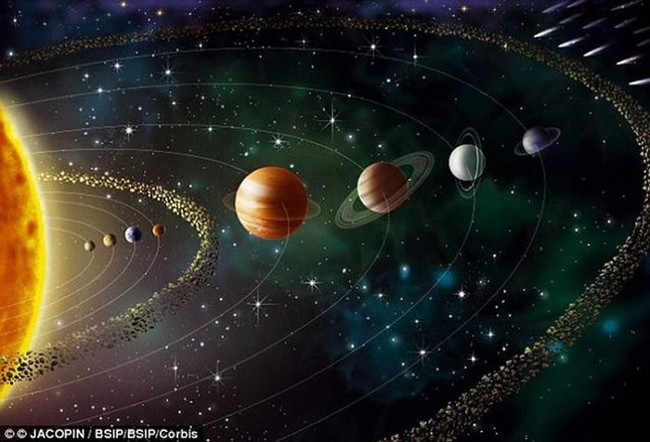
Photo simulation of heliocentric theory.
The concept of heliocentrism is probably associated with many people but typically Galileo, who is considered the father of modern science, the father of modern physics, who was praised by Stephen Hawking : " Galileo, perhaps more than any other single person, was responsible for the birth of modern science".

The great scientist Galileo in his youth.
He was a man who fought for justice and science, even though he was later forced to abandon the heliocentric theory and lived the last days of his life under house arrest by order of the Roman Inquisition. He had a saying that had great value both figuratively and literally: " The Earth still rotates !".
So is that actually true?
Nowadays, the development of astronomy helps humans make great strides in observing and researching the universe. The Heliocentric theory is no longer accurate due to the discrepancy in the concept of the universe from the previous era to the present .
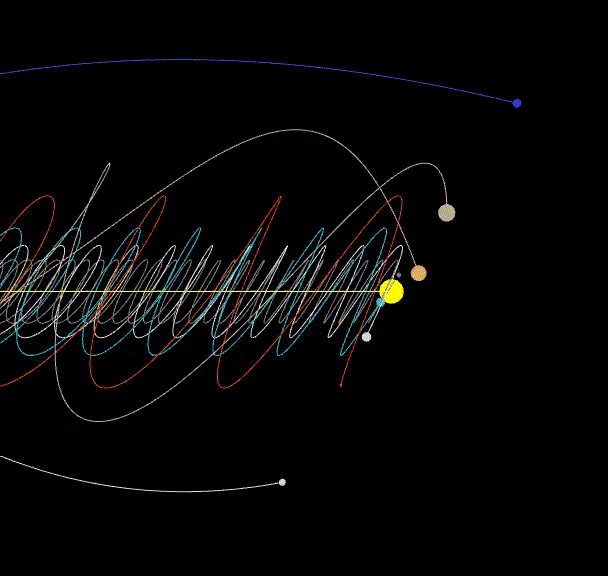
Facts about the movement of the solar system.
The sun is not the center of the universe, it is only the center and is only stationary if considered in the plane reference frame of the solar system.
In fact, the Sun is just one of about 200-400 billion stars in the Milky Way. Just like the Earth always revolves around the Sun, our star also constantly moves, revolving around the core of the Milky Way, not standing still as the heliocentric theory mentioned!
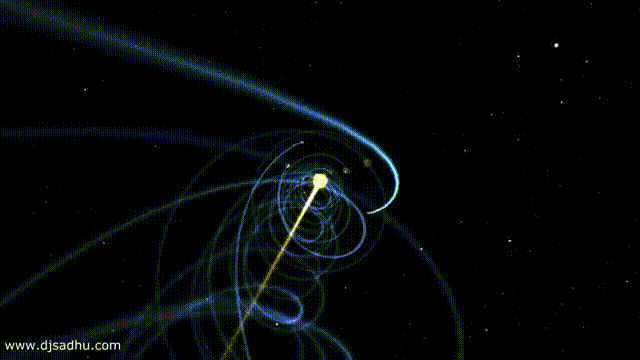
The Solar System as it moves around the Milky Way.
The Milky Way is a giant spiral galaxy with a disk-shaped structure, loosely connected arms, and a prominent central bulge. It is about 100,000 light-years in diameter.
The distance from the Sun to the center of the Milky Way is about 28,000 light years, so even though the Sun moves at a huge speed of 828,000 km/h, it still takes 226 million years to complete one revolution around the Milky Way.
Result
So we can see, neither the Sun nor the Earth is the center of the universe and everything does not revolve around it. The Sun is always moving, even at a very high speed, but the point is that it always carries its "children" as it revolves around the vast Milky Way.
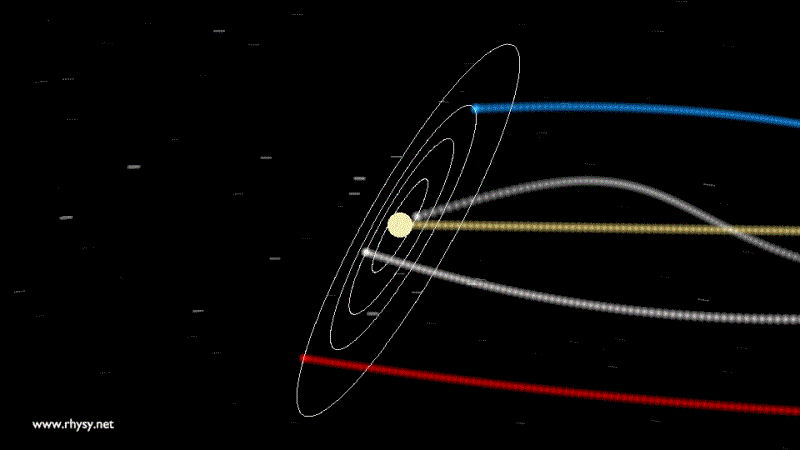
Solar System plane in motion.
It is for that reason that there are confusions in geocentric and heliocentric theories.
But here we have more questions, the Milky Way is just one of countless galaxies in the vast universe, so what does it revolve around? Or more broadly, is there anything else outside the universe or does the universe revolve around anything?
|
What is a frame of reference?
In mechanics, a reference frame is a coordinate system, based on which the position of every point on an object and the position of other objects are determined, and there is also a time clock to determine the time of events. For the same physical event, when we change the reference frame, the position and time of occurrence will be different.
|
